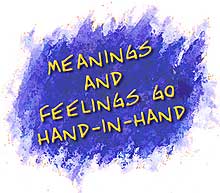 You will have noticed that many of the stories told so far not only have important MEANINGS, but are also associated with very important FEELINGS. Meanings and feelings go hand in hand.
You will have noticed that many of the stories told so far not only have important MEANINGS, but are also associated with very important FEELINGS. Meanings and feelings go hand in hand.
Also, you may have noticed that these important feelings can be very hard to get hold of. In our work this is our biggest problem.
People are so used to brushing aside their awkward or negative feelings, or burying them, or converting them into more acceptable form. There are many reasons why people neglect their negative feelings

Some people more naturally control or hold in their feelings than others.

All of us are living with a constant parade of major or minor feelings all the time. Efficiency of function in the world, safety in relationship, and many other factors demand that we attend to some feelings but not others, at any one moment in time. This means that we all neglect some of our feelings. This may or may not lead to trouble.
In the stories we have told so far you can see example after example of neglected feelings expressed in physical illness.
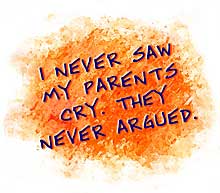
Some people have experienced a childhood where:
feelings were not encouraged,
or the feelings were reacted to badly,
or negative feelings were punished in some way,
or parents modeled a lack of expression of feelings.

Some people have powerful unconscious feelings which are too scary to face. Sometimes these feelings originate in early life where they were quite unmanageable for the child at that stage of development.
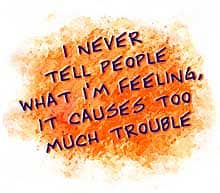
Many people will not risk expressing feelings because they might ‘rock the boat’, or create conflict, or risk a relationship.
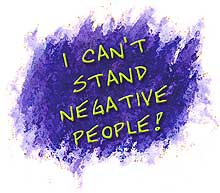
Some people have been taught to be positive at all costs. This ‘positive approach’ can become an entrenched style which does not allow adequate range of emotional expression. In this situation negative feelings may get expressed in the body.
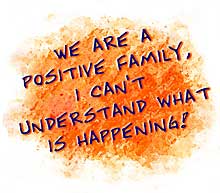
Some families try to solve life by complete denial of the negative things. But an accumulation of unacknowledged negative feelings in the family system can bring it to breaking point—someone will get ill, or depressed, or ‘act out’ in the form of crime or antisocial behavior and so on.

Some relationships are built around one person carrying the ‘bad’ and another carrying the ‘good’—in this situation we often find one burdened by negativity (in the form of depression, anxiety, or physical illness) and the other positive, coping, and proclaiming he/she has no problems
But, whatever the reasons, a major key to progress is to acknowledge important feelings. Let’s do some work on this.